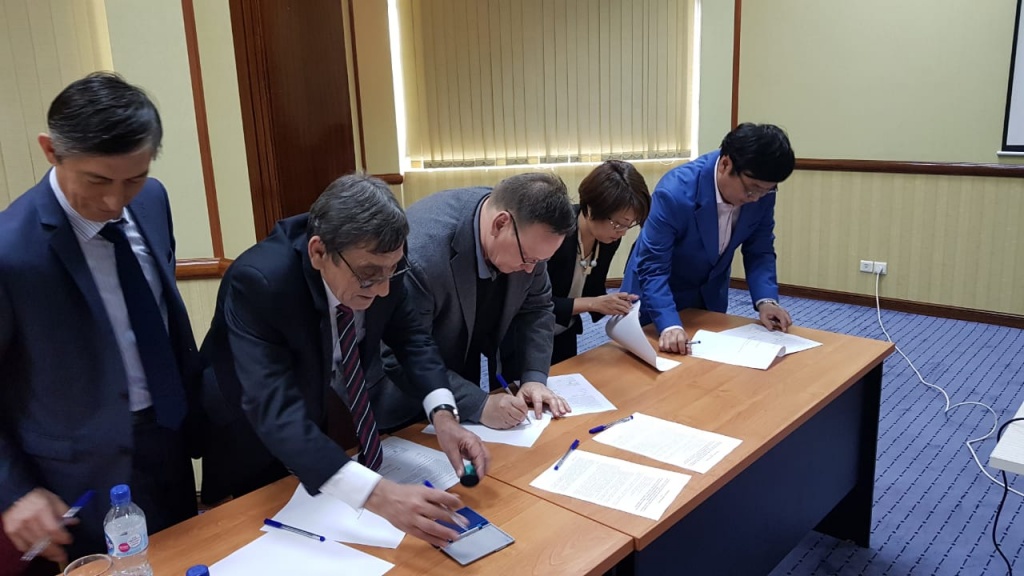Climate change is our reality. Today, all countries of the world, one way or another, are forced to take measures to minimize the damage from the negative impact of climate change. The countries of Central Asia, like all countries of the world, have already faced the negative consequences of climate change, among them the melting of glaciers, a decrease in the water content of rivers, frequent droughts, natural disasters.
There is a growing understanding in the region that achieving climate sustainability is possible only with joint problem solving and taking into account the most important transboundary interests at the level of the Central Asian region. National and regional studies conducted in Central Asia indicate that the region is experiencing climate warming with an average annual temperature increase of 0.50 С over the past 30 years. Global climate change has an impact on glaciers, water resources, changes the way of life in rural areas and adversely affects agricultural production.
Climate challenges gave impetus to regional cooperation on adaptation and mitigation of its negative consequences. In this regard, in the region, the Intergovernmental Commission on Sustainable Development (ICSD) has launched the process of creating a Regional Environmental Protection Plan (ROPS), the most important priority of which is adaptation to climate change. A number of regional projects and programs are also actively developed, including the “Climate Change Adaptation and Mitigation Program in the Aral Sea Basin” (CAMP4ASB) implemented with the support of the World Bank, “The Ecosystem Approach for Adaptation to Climate Change in High Mountain Regions of Central Asia ”, Implemented by the German Agency for International Cooperation and a number of others.
Central Asian civil society organizations that also carry out a number of important adaptation programs at the local level also unite their efforts at the regional level to implement a joint action plan and improve information exchange on climate issues. At the Climate Conference held in Tashkent in early April 2019, organized by the Regional Environmental Center for Central Asia, as part of the CAMP4ASB project, by national public network organizations, with the support of the project “Program for adaptation to climate change and mitigation of its consequences in the Aral Sea Basin” (CAMP4ASB) the Central Asian Climate Network was established.

Signing a Memorandum of cooperation in the framework of the Climate Network of NGOs in Central Asia: Saidrasul Sanginov, Ecological Movement of Uzbekistan, Timur Aliev, Society for the Conservation of Nature of Turkmenistan, Yuri Skochilov, Climate Network TajCN Tajikistan, Abdurasulova Nurzat, Climate Network of Kyrgyzstan, Vadim Ni - EcoForum of Kazakhstan.
The climate network of non-governmental organizations in Central Asia is an informal, voluntary association of national network organizations of civil society in Kazakhstan, Kyrgyzstan, Tajikistan, Turkmenistan and Uzbekistan, is created in order to more actively involve the public in the process of implementing regional and national climate change priorities and policies in Central Asia The network includes national network organizations working on environmental issues, sustainable development and climate change, including the EcoForum of Kazakhstan, the Climate Network of Kyrgyzstan, the TajCN Climate Network of Tajikistan, the Society for the Conservation of Nature of Turkmenistan and the Ecological Movement of Uzbekistan.

In addition to raising public awareness of Central Asia on international, regional, and national climate policy issues, the network will help define adaptation priorities based on the vulnerability of communities, disseminate advanced adaptation experiences, and promote the adoption of best practices on climate change adaptation and mitigation.
In modern conditions, overcoming the problems associated with climate change requires active regional cooperation and the involvement of all stakeholders, including public organizations. These organizations are often at the forefront of the fight against climate change, working with villagers and communities living in an environment where it is necessary to respond to constantly changing conditions, climate risks and threats.
Today, there are many climate scenarios for our future; based on all of them, adaptation will require adjustments in behavior, natural resource management, and economic activities to reduce the vulnerability of communities, regions, and countries to climate variability. Adaptation will require the combined efforts of politicians, researchers, practitioners of climatology, ecology, economics, social development and public organizations.